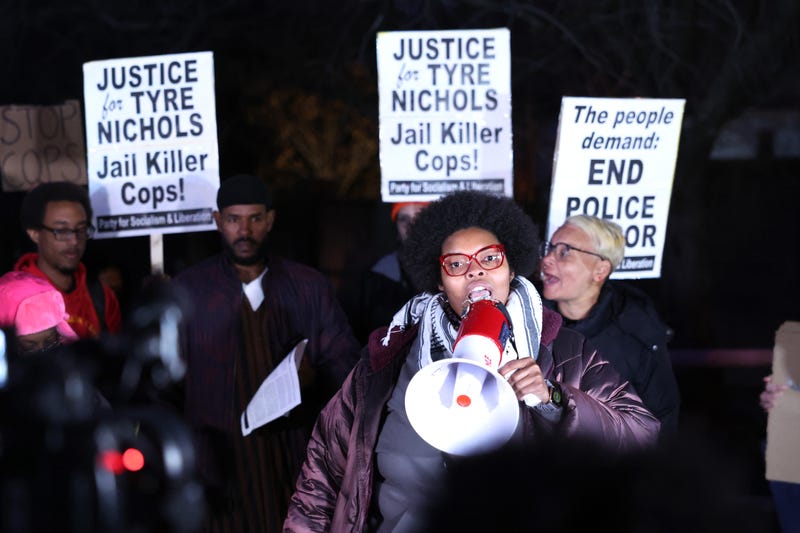
PHILADELPHIA (KYW Newsradio) — The fatal police beating of Tyre Nichols last month in Memphis again brought the issue of excessive force to the forefront of many Americans' minds. However, Nichols' death, in particular, has been harder to digest for some, especially among many in the Black community.
In 1992, the world watched as Rodney King, a Black man, suffered countless blows on the side of the road while handcuffed, under the batons of white Los Angeles police officers. King suffered massive brain damage, but survived. Those images became etched in the minds of many as a symbol of the problem of police brutality and systemic racism.
But there was a notable difference between Nichols and King's attacks: The five officers charged with murder in Nichols' case are Black.
“It is very confusing to believe that people who look like us would inflict harm upon us in a way that is so abusive to death,” said Dr. Angela Roman Clack, a psychotherapist who runs a counseling practice in Sicklerville.
Clack could not watch the entire video of the Nichols beating, and understands how people still can’t wrap their heads around it — with the brutal images starkly undercutting what had been the initial police narrative.
“I think it leaves a lot of us very confused,” she said, “and very sad and disturbed.”
There is a long and painful history of police brutality against African Americans, but this case is especially difficult to process based on the race of the officers. Clack points to internalized racism tracing it back to slavery, noting enslaved Africans helped to keep other enslaved Africans in line. She says that dynamic can show its face today when people become indoctrinated in groups with power.
Another possible variable at play in the Nichols fatal beating, Clack says, is the bystander effect. In addition to the officers who were charged in the case, another, who is white, was fired and another was suspended. Two sheriff's deputies were also relieved of duty and two EMTs were fired along with a fire department lieutenant. The medical officials did not provide care to Nichols for nearly 20 minutes after arriving on the scene.
“That bystander effect is, ‘We stand by and we watch while nobody takes the initiative to go and do something,’” she said.
Solomon Jones, founder of ManUp PHL, which mentors young men and works to end gun violence in the city, agrees that the culture of policing in the U.S. has deep roots in systemic racism — a culture that can transcend the color of officers.
“It doesn't matter whether you are Black or you're white, if you're in a system where your position can only move in a certain way, then you become part of a system that is racist,” he said.
He says the George Floyd Justice in Policing Act needs to pass on a national scale, but it’s not likely with the current make-up of Congress, so he wants pressure to build to reform things at the local level.
Philadelphia City Councilmember Isaiah Thomas has long been outspoken about police reform. He also has not been able to bring himself to watch the entire fatal beating video. He says part of the problem is that many people see Black men as a threat.
“And as long as that's the case, both consciously and subconsciously, we're going to continue to put people in a position where they can be a victim of being stereotyped, and they can, unfortunately, pay the ultimate price for something that might only cost a $73 ticket,” Thomas said.
That, he says, is why he pushed for a new city law that should minimize interactions between law enforcement and drivers for minor traffic offenses.
Thomas is an advocate for having police reflect the neighborhood they patrol, having Black cops paired with white cops to help curb any bias. That didn’t work in the case of Nichols, but Thomas still believes in the heart of that concept.
“Community policing and people policing their neighborhoods is a good thing. I think that you're always going to see isolated situations where something happens that's out of the norm, but at the end of the day, it's not a concept that I think we should move away from because of this particular incident,” he added.
So, how do we heal? Clack says we must process unresolved, undigested trauma. She admits healing has been difficult, specifically for Black people in America who keep witnessing these injustices, as there has been little time to recover from the secondary traumas of recurring brutal incidents.
“You have to talk about this,” she urged. “What people may be doing when they can't talk about it, is we drink, we smoke, we do drugs, we do other things because we can't deal with the feelings.”


